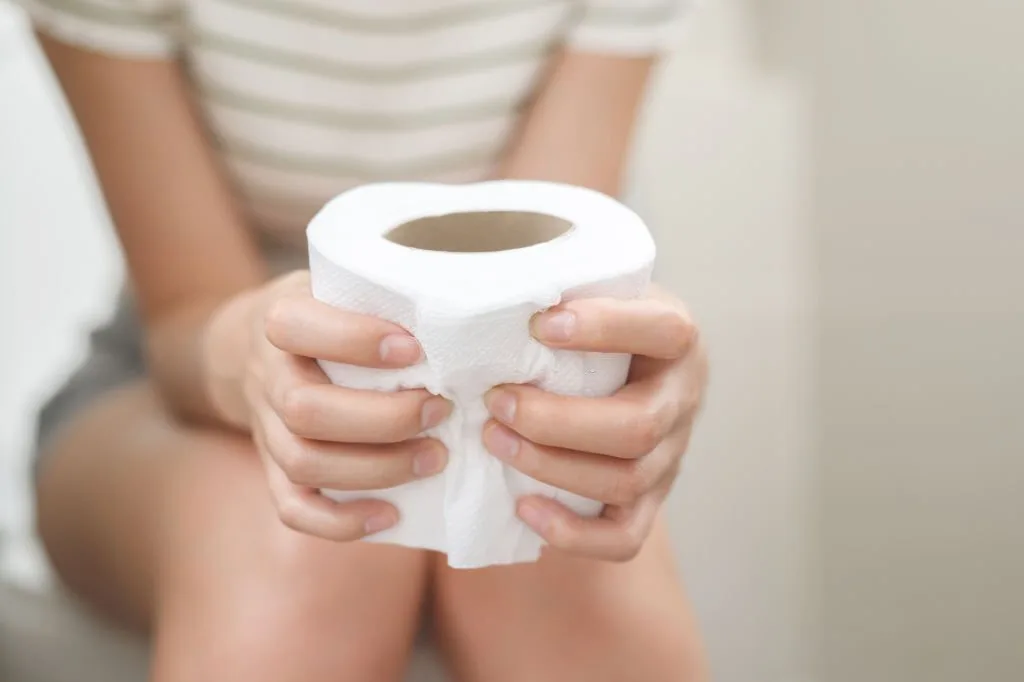Picture this. You’ve just begun your journey with zinc supplementation, eagerly awaiting its health-boosting benefits, when suddenly, you’re hit with an unexpected adversary: constipation.
But is it possible: can your hero have this darker side? Does zinc cause constipation?
Zinc supplements may cause constipation if you take a high dosage at once or take them for a long time. The supplements cause constipation by interfering with other minerals, affecting the gut bacteria, or slowing food transition by impacting muscles and nerves. But this side effect is usually rare.
Let’s explore zinc-induced constipation in detail: the reason and the remedy.
Understanding Zinc
Zinc is a trace yet essential mineral, meaning your bodies only need a small amount. However, don’t let this “trace” status fool you.
Zinc is crucial for metabolism, nerve function, and immune support. It activates over 300 enzymes and aids in wound healing and sensory perception.
You can get zinc from various food sources, including-
- types of seafood
- whole grains
- dairy products
- legumes.
You can also take zinc supplements, of course, with your doctor’s consultation, to fulfill your body’s needs. However, taking too much zinc can lead to various side effects.
Discover the connection between zinc and libido.
Does Zinc Cause Constipation?
Zinc can cause constipation by slowing down food movement through the digestive tract. It can lead to hard, dry stools that are difficult to pass.
Constipation may occur for various reasons after taking zinc.
Zinc may interfere with absorbing other minerals, such as copper and iron, important for maintaining normal bowel movements.
Another reason is that zinc may affect the balance of bacteria in the gut. It can also influence the digestion and elimination of waste.
A third reason is that zinc may directly affect the muscles and nerves of the intestines, making them less active and slowing down the transit of food.
However, according to studies, high doses of zinc can cause gastrointestinal discomfort, but constipation is not a common side effect.
Also, not everyone who takes zinc supplements will develop constipation. The effect may vary depending on the dose, duration, and form of zinc.
Sometimes, constipation can cause discomfort, bloating, and abdominal pain.
Can Zinc Cause Constipation In Babies?
Zinc can cause constipation in babies, especially if they get more than the recommended amount. It can interfere with water absorption and electrolytes in the intestines, leading to hard and dry stools. It can also affect the motility of the gut, slowing down the movement of food and waste through the digestive tract.
According to the National Institutes of Health (NIH), Infants up to 6 months need 2 mg of zinc per day, while those between 7-12 months need 3 mg. Don’t exceed 4 mg of zinc daily for infants up to 12 months.
So, parents should be careful about the amount of zinc their babies get from different sources. They should consult their pediatrician before giving their infants zinc supplements or fortified foods.
Besides, parents should also monitor their babies’ bowel movements and look for signs of constipation, such as straining, crying, or blood in the stools. If they get constipated from taking zinc, they should talk to a doctor and adjust their zinc intake.

Does Zinc Cause Constipation In Toddlers?
Too much zinc may cause constipation in toddlers by reducing water in the intestines and interfering with muscle contractions that move stool along.
The recommended dietary allowance (RDA) of zinc for toddlers aged 1 to 3 years is 3 milligrams daily. Besides, most toddlers can get enough zinc from a balanced diet that includes meat, poultry, seafood, eggs, dairy products, beans, nuts, and seeds.
Here are some home remedies to help relieve constipation in toddlers.
- Giving more fluids, such as water, juice, or milk, to help soften the stool and increase the frequency of bowel movements.
- Eat more fiber-rich foods like fruits, vegetables, whole grains, and cereals to improve bowel movement.
- Encouraging your toddler to be more physically active, as exercise can stimulate bowel movements and prevent constipation.
- Massage your toddler’s abdomen clockwise to help relax the muscles and move the stool.
- Using a stool softener or laxative if recommended by your doctor or pharmacist.
But if your toddler’s constipation persists or worsens despite your efforts, you should consult your doctor for further advice and treatment.
Recommended Daily Intake Of Zinc?
The right dose of zinc that you should consume daily depends on your age and gender.
The National Institutes of Health (NIH) suggests that women consume 8 milligrams (mg) of zinc daily, while men should consume 11 mg. Pregnant or breastfeeding women require a higher intake of zinc than those who are not.
Therefore, pay close attention to your zinc to maintain optimal health.
Check if zinc can increase testosterone.
How Much Zinc Is Too Much?
It’s good to keep an eye on how much zinc you’re getting since too much can cause some not-so-fun side effects like constipation.
The National Institutes of Health recommends that adults don’t exceed 40 mg of zinc daily. Taking more than that, you might experience stomach problems like nausea, vomiting, and diarrhea.
Here’s a chart that shows the maximum limits of zinc for different age groups.
| Ages | Upper Limit |
| Birth to 6 months | 4 mg |
| Infants 7 to 12 months | 5 mg |
| Children 1–13 years | 7-23 mg |
| Teens 14–18 years | 34 mg |
| Adults | 40 mg |
How to Avoid Constipation When Taking Zinc
You can take several measures to prevent unwanted side effects, including constipation while taking zinc.
- Drinking enough water can help keep your stools soft and prevent constipation.
- Add high-fiber foods like fruits, veggies, whole grains, and legumes to your meals for better digestion. Try prunes, apples, flaxseed, and watermelon.
- Regular exercise can help keep your digestive system working correctly.
- Take zinc supplements with food to reduce digestive problems like constipation.
- Try zinc supplements like picolinate or citrate for better absorption and less GI problems instead of zinc sulfate or zinc oxide. Chelated zinc supplements, bound to amino acids, can also improve absorption.
How To Treat Constipation
There are several ways to treat constipation, depending on the cause and severity of the problem.
- Drinking more fluids
- Eating more fiber-rich foods
- Use OTC laxatives or stool softeners as directed by your doctor or pharmacist. Don’t use them for more than a week without consulting your doctor.
- Avoiding foods that can worsen constipation, such as dairy products, processed foods, refined carbohydrates, and alcohol.
If you have severe or long-lasting constipation, or notice blood in your stool, fever, weight loss, nausea, vomiting, or abdominal pain, seek medical attention. These symptoms may indicate a more serious condition.
Alternatives to Zinc Supplements
Many foods are rich in Zinc that you can take instead of supplements. These include-
- Oysters
- Beef
- Pork
- Chicken
- Beans
- Nuts
- whole grains
- fortified breakfast cereals
- dairy products.
Other Supplements That May Not Cause Constipation
Not all supplements cause constipation; some may even help to relieve constipation. Here are some examples of supplements that may improve bowel movements.
- Magnesium: This mineral helps to relax the digestive tract muscles and draw water into the stool, making it softer and easier to pass.
- Probiotics: These live in the gut and help to balance the microbiome, which may affect digestion and bowel health.
- Vitamin C: This vitamin has a laxative effect when taken in high doses, as it increases the water content of the stool and stimulates the intestinal muscles.
- Psyllium: This type of soluble fiber forms a gel-like substance in the gut and adds bulk to the stool, which can help prevent or treat constipation.
Other Side Effects Of Taking Too Much Zinc
In addition to constipation, taking too much zinc can lead to other side effects. These include-
- Nausea
- Vomiting
- Diarrhea
- Headache
- Loss of appetite
- Stomach cramps
- Copper deficiency
Can zinc affect PCOS? Discover.

FAQ
Can vitamin C and zinc cause constipation?
Taking too much vitamin C and zinc may cause constipation, but studies have conflicting results. Drink enough water, eat fiber, and exercise regularly to prevent it.
What vitamins cause constipation?
Certain vitamins and minerals, including iron, calcium, vitamin D, and vitamin C, can cause constipation when consumed excessively. Multivitamins and prenatal vitamins might also lead to constipation due to their composition.
Bottom Line
Does zinc cause constipation?
While zinc supplements are generally well-tolerated, they may cause digestive issues, including constipation. Always check with your healthcare provider before changing your supplement routine. This way, you can ensure you take the right amount for your needs.
Visit our blogs for more on supplementation.

I am a health and wellness enthusiast working in a Pittsburgh-based wellness clinic. My primary role as a consultant is to tailor a balanced lifestyle for my patients, where positive steps and potent supplements play a synergistic role.

